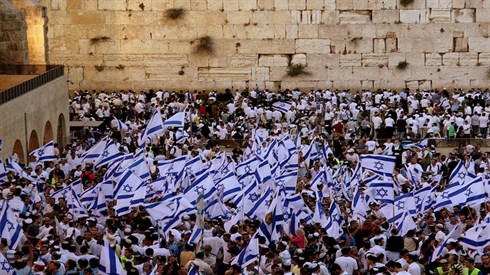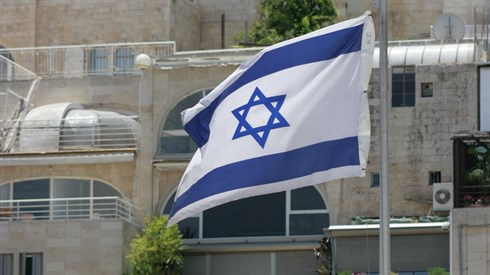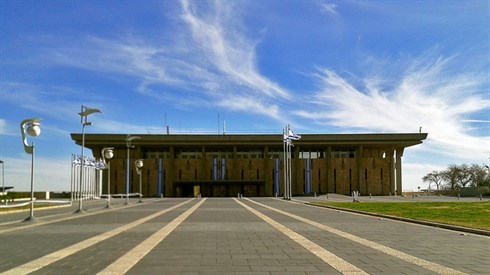- Halacha
- Gedolim and Rabbis
171
Question
Thank you..! Good day and more and more amazing classes.. more enlighting speech. .... question if I dare please. Can names of tsaddikim be used in conversations or is it better to avoid it? (meaning names of tsaddikim possess a degree of holiness.) How does it affect on writing and speaking names of tsaddikim in daily conversations? Any sources for it? am sorry for asking a shallow question. but have no expert on this to ask around. Y K
Answer
One should relate to the names of tzaddikim, as is customary to respect, in each respective period, and according to their appropriate level, but there is no holiness, as their names are used by others named after them (although in the times of the Mishna and Talmud, the really "top" names, such as Avraham, Moshe, Aharon, David, Shlomo were apparently not dared to be used). The heroes of the Tanach sometimes have respective titles, such as the term "avinu" [= our father], regarding Avraham Avinu, Yitzchak Avinu and Ya'akov Avinu, and "Imenu" [our mother] for the 4 matriarchs. Similarly, Moshe Rabbenu [= our teacher] is usually used, as is David HaMelech [= the king], Yosef HaTzaddik [= the righteous], Aharon HaCohen [= the priest], Eliahu HaNavi- Dvora haNeviah [=the prophet/ess], but most others are simply called by their names, e.g. Joshua Bin Nun, Gid'on, or the names of their area, e.g. Yiftach HaGiladi, and this is accepted and not disrespectful. These titles also are not obligatory, e.g. commentators usually don't use these titles of honor, for the sake of brevity. In later generations, sometimes the title of rabbi is Rabban, Rabbi, or Rav, according to different periods. When a tanna or amora (roughly 0-500 CE) is referred to just by his first name, that is precisely seen as unique honor and special endearment, e.g. Hillel, Shammai, Shmaya, Avtalyon, Rava, Abayeh…). This is similar to the practice among sfaradim to this day, where Rav Ovadia Yosef writes that it for them, it's actually less (!) respective to call a rabbi by his last name, say Rav Azulai, but rather he should be called by his acronym [e.g. the Chida= Chaim Yosef ben David Azulai] or the name of his book [e.g. the Birkei Yosef, or Chazon Ish], or as he himself was called by everyone, simply: HaRav Ovadia, where HaRav [= the Rabbi, as in 3rd person] is more common than just "Rav" or "Rabbi". Such endearment is also not uncommon in ashkenazic yeshiva circles, such as: Reb Moshe [Feinstein] or Reb Aharon [Kotler, or Lichtenstein] or Reb Aryeh [Levine]. Rarely, there are rabbis who are so great that in their country, everyone simply refers to them as HaRav [= THE Rabbi], even without their first or last names, which is a uniquely special status, e.g. HaRav [Kook] in Israel, or HaRav [Soloveitchik], in America. On the other hand, usually today, in more western and ashkenazic circles, the more official title+ (sometimes first and) last name, is most accepted, e.g. Rav Osher Weiss, Rav Chaim Kanievsky, Rav Eliashiv, Rav/Rabbi Riskin.
In addition, if a righteous person is alive, we often add: shlit"a [=sheyichyeh l'yamim tovim v'arukim= may he live good and many days], or if deceased, we add zt"l [=zichron tsaddik livracha, the memory of a righteous one is blessed].
yorzeit if avrohom avinu
Rabbi Daniel Kirsch | Tevet 20, 5782
but why they try to create golem?
Rabbi Daniel Kirsch | Kislev 16, 5782

Rambam
Rabbi Yoel Lieberman | Tammuz 16, 5779

Microphone on Shabbos for R. Soloveichik
Rabbi Ari Shvat | Nisan 5, 5779

Can a Christian be recognised as Ger Toshav?
Various Rabbis | 20 Elul 5767

Direction of Sleeping
Rabbi Yoel Lieberman | Shevat 9, 5770

’Bein Ha’arbayim’
Rabbi Chaim Tabasky | 12 Av 5764

Sefira observance on Yom Haatzmaut
Rabbi Chaim Tabasky | 7 Iyyar 5766

Follow up to "outdated Mitzvot", Sanhedrin, morality etc.
Rabbi Ari Shvat | Nisan 18, 5785

Blessing for non jew
Rabbi Yoel Lieberman | Nisan 23, 5785

Havara- Sefaradic or Ashkenazic Pronunciation
Rabbi Ari Shvat | Nisan 17, 5785




